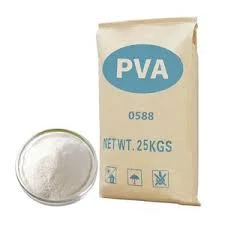The Importance of Cellulose Ether Focus on HEMC
Cellulose ethers are a significant class of water-soluble polymers derived from cellulose, the most abundant organic polymer on Earth. Among the various types of cellulose ethers, Hydroxyethyl Methyl Cellulose (HEMC) has gained prominence in numerous industries, including construction, pharmaceuticals, and food production. This article will explore the properties, applications, and benefits of HEMC, illustrating why it is an essential component in various formulations.
Properties of HEMC
HEMC is a non-ionic, water-soluble polymer that can be modified to achieve different molecular weights and viscosities, making it highly versatile. Its chemical structure consists of a cellulose backbone with hydroxyethyl and methyl groups attached. These modifications enhance its solubility in water and its ability to form gels, giving it unique properties that are prized in many applications.
One of the standout characteristics of HEMC is its rheological behavior. Depending on the concentration and temperature, HEMC can exhibit pseudoplastic flow, which means that its viscosity decreases under shear stress. This attribute is crucial in formulations where easy application is paramount, allowing for smooth mixing and spreading without compromising the material’s cohesive properties when at rest.
Additionally, HEMC is known for its excellent film-forming ability and water retention properties. This makes it particularly useful in applications where moisture retention is critical, ensuring that products maintain their effectiveness over time.
Applications of HEMC
HEMC is utilized across a broad spectrum of industries, and its applications can be categorized into several key areas
1. Construction In the construction sector, HEMC is commonly used as an additive in cement-based materials, such as mortars and plasters. Its water retention properties enhance workability and promote adhesion, while its ability to improve the material's rheological characteristics ensures that the mixture remains homogenous during application. This translates to improved performance and durability of construction materials.
cellulose ether hemc

2. Pharmaceuticals HEMC plays a pivotal role in the pharmaceutical industry as a binder and stabilizer in drug formulations. It is used in the production of controlled-release tablets and in formulating suspensions and emulsions. Due to its non-toxic nature, HEMC is ideal for pharmaceutical applications, ensuring that products are safe for consumption.
3. Food Industry In the food sector, HEMC is utilized as a thickening agent, stabilizer, and emulsifier. It helps improve the texture and consistency of various food products, such as sauces and dressings. Additionally, it can be used in gluten-free and low-fat products to enhance mouthfeel without adding excessive calories.
4. Personal Care Products HEMC is also employed in cosmetics and personal care formulations. It is used in lotions, creams, and gels to provide a smooth application and enhance the sensory attributes of the product. Its film-forming properties add a sensory experience to personal care applications, making it an attractive ingredient for formulators.
Benefits of HEMC
Incorporating HEMC into various formulations offers several advantages. First and foremost, its versatility allows formulators to tailor products to meet specific performance criteria. This adaptability is essential in industries where customization is often required to satisfy diverse consumer needs.
Moreover, HEMC is an eco-friendly and biodegradable polymer, making it a more sustainable choice compared to synthetic alternatives. The use of natural cellulose as the base material aligns with the growing demand for green and sustainable products across various industries.
Finally, the increased emphasis on product quality and performance means that the use of HEMC can enhance the overall functionality of a product, leading to higher consumer satisfaction.
Conclusion
In summary, Hydroxyethyl Methyl Cellulose (HEMC) is a vital cellulose ether that offers vast potential across numerous industries. Its unique properties, from water retention to film formation and rheological versatility, make it an invaluable ingredient. As industries continue to evolve and seek sustainable solutions, HEMC stands out as a critical component that supports innovation and enhances product performance, ultimately benefiting both manufacturers and consumers alike.
-
The Versatility of Industrial Additives: Mhec, Hpmc, And Wall Putty SolutionsNewsMar.28,2025
-
The Importance of HPMC in Modern IndustriesNewsMar.28,2025
-
Partnering with Reliable Manufacturers for Optimal ResultsNewsMar.28,2025
-
Enhancing Construction Performance with Redispersible Polymer PowdersNewsMar.28,2025
-
Enhancing Construction and Household Products with Advanced AdditivesNewsMar.28,2025
-
Building Strong Foundations with Key Construction MaterialsNewsMar.28,2025






